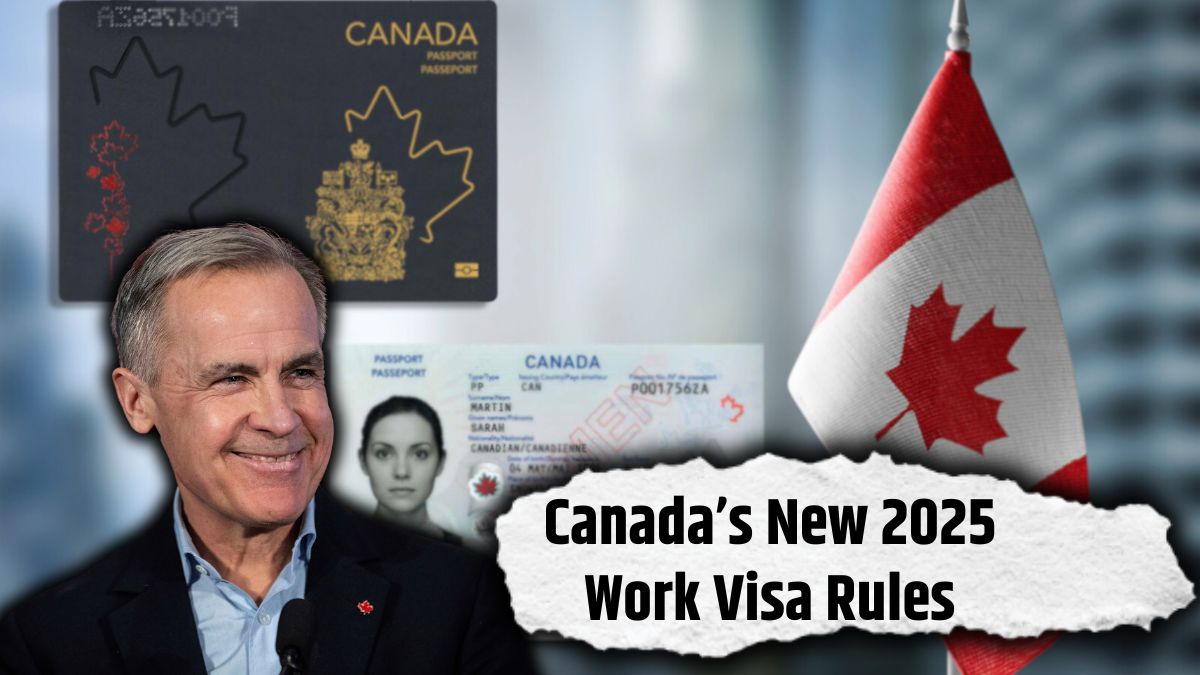Canada remains one of the top destinations for international workers, and starting July 2025, it is set to become even more accessible. In a significant policy update, eligible foreign nationals can now work in Canada without needing a job offer upfront, expanding opportunities for skilled individuals, students, spouses, and entrepreneurs.
This shift aims to support talent mobility while easing entry barriers for those with the skills or potential to contribute to Canada’s workforce and economy.
Open Work Permits: Broad Freedom for Workers
One of the most accessible options is the Open Work Permit, which allows you to work for almost any employer in Canada without being tied to a specific job or company. It’s ideal for individuals seeking flexibility and mobility within the Canadian job market.
Who Can Apply for an Open Work Permit?
The Open Work Permit is generally issued to:
- Spouses or common-law partners of skilled workers
- Spouses of international students
- International graduates eligible for a Post-Graduation Work Permit (PGWP)
- Refugees and certain temporary residents
However, some restrictions apply—you cannot work for employers who have breached labor regulations or are listed as ineligible by the Canadian government.
Post-Graduation Work Permit (PGWP): For International Graduates
If you’ve completed a recognized program at a Canadian institution, the PGWP gives you the chance to live and work in Canada for up to three years. This allows you to gain professional experience, often a critical step toward permanent residency.
Key Benefits of PGWP
- No job offer required to apply
- Open work rights across sectors and employers
- Canadian work experience boosts your permanent residency application
The PGWP is a highly attractive pathway for graduates seeking to transition into the Canadian workforce long-term.
International Mobility Program (IMP): Specialized Access Without LMIA
The International Mobility Program (IMP) allows certain foreign nationals to work in Canada without undergoing a Labour Market Impact Assessment (LMIA). While not all streams under IMP are job-offer free, many allow entry based on reciprocal agreements or broader economic and social benefits.
Conditions and Coverage of IMP
You may qualify under IMP if:
- You’re entering through international agreements (e.g., CUSMA, formerly NAFTA)
- You’re part of a reciprocal employment program
- Your entry provides significant cultural, social, or economic benefit to Canada
Many of these permits are open or LMIA-exempt, making them ideal for individuals seeking a less bureaucratic entry point into the Canadian labor market.
Spousal Open Work Permit: Join Your Partner in Canada
If your spouse or common-law partner is working or studying in Canada, you may be eligible for a Spousal Open Work Permit. This permit allows you to work for any employer, without needing your own job offer.
Advantages of Spousal Work Permits
- Valid for the same duration as your partner’s permit
- No employer sponsorship needed
- Freedom to work in any industry
This pathway is particularly helpful for families or couples looking to settle together in Canada.
Start-up Visa Program: Build a Business, No Job Offer Required
For aspiring entrepreneurs, the Start-up Visa Program provides a unique opportunity to immigrate to Canada without a job offer. Instead, your innovative business idea and investor backing serve as your entry ticket.
Steps to Apply for a Start-up Visa
- Pitch your business idea to a designated Canadian organization
- Secure a letter of support from a venture capital fund, angel investor, or incubator
- Meet language and financial requirements
- Apply for permanent residency and receive a work permit to launch your business
This program is designed for innovation-driven entrepreneurs with global potential.
Summary Table: Work in Canada Without a Job Offer
| Pathway | Job Offer Required? | Type of Work Permit | Highlights |
|---|---|---|---|
| Open Work Permit | No | Open | Broad eligibility, employer flexibility |
| Post-Graduation Work Permit | No | Open | Ideal for international students |
| International Mobility Program | Sometimes No | Often Open | LMIA-exempt, based on treaties or economic benefit |
| Spousal Work Permit | No | Open | Tied to spouse’s status, broad employer access |
| Start-up Visa Program | No | Entrepreneurial | Business-backed PR pathway, no employer needed |
Why This Matters: Simplified Immigration and Greater Access
With these updates, Canada is becoming more inclusive and opportunity-rich for foreign workers. By eliminating the job offer requirement in many scenarios, the country is opening its doors to skilled individuals, international graduates, and innovative entrepreneurs who might otherwise face delays or obstacles.
This is a strategic shift—Canada is not just filling immediate labor gaps, but investing in long-term immigration success.
Stay Updated: Use Official Channels
Before applying, always refer to official resources like the Immigration, Refugees and Citizenship Canada (IRCC) website. Ensure your documents are up to date, meet all requirements, and stay informed of any changes in eligibility or application procedures.
FAQs
Q1. What is the best work permit if I don’t have a job offer?
The Open Work Permit is ideal for flexibility. It lets you work for nearly any employer in Canada.
Q2. How long is the PGWP valid?
It is valid for up to three years, depending on the duration of your study program.
Q3. Can I move to Canada as an entrepreneur without a job offer?
Yes, the Start-up Visa Program allows you to move without employer sponsorship if you have a viable business plan and investor backing.







